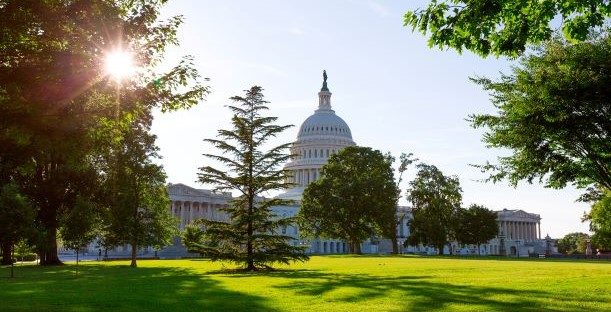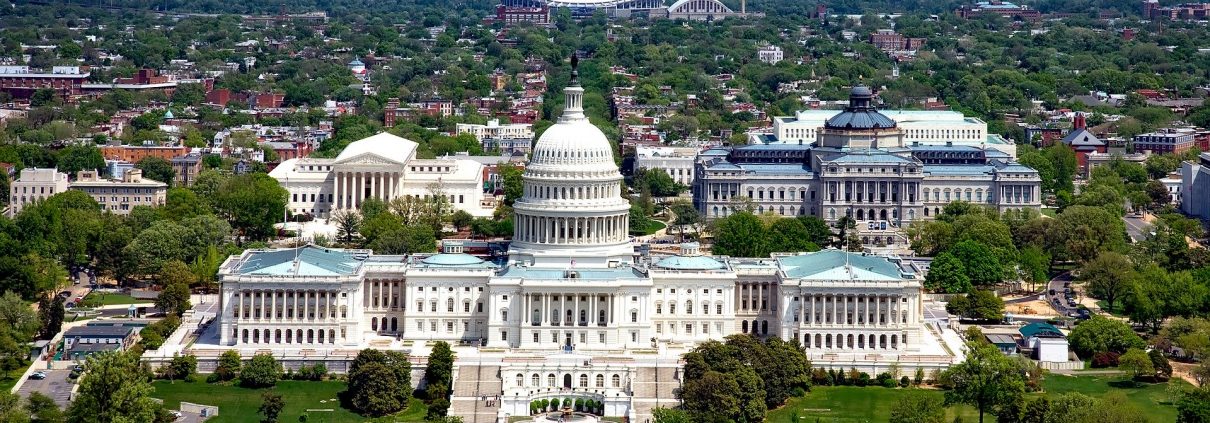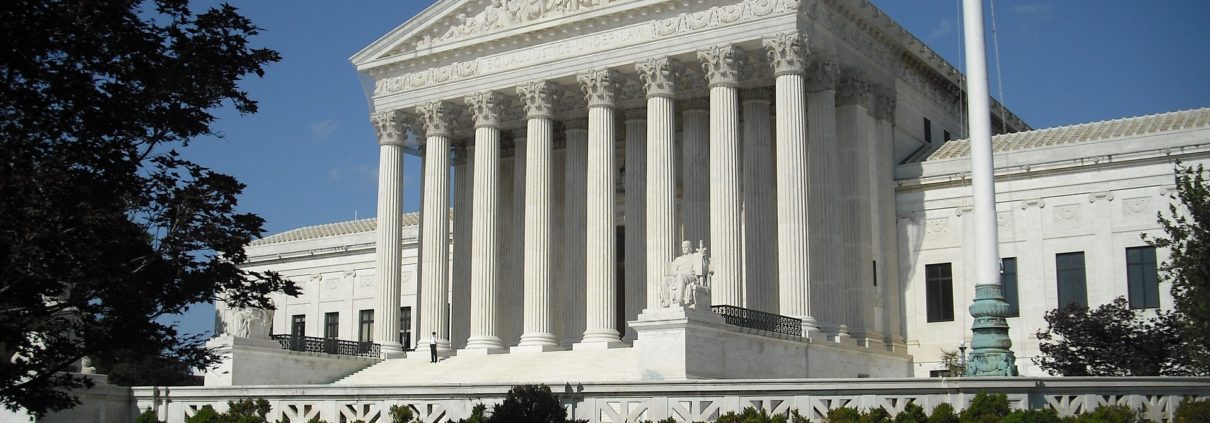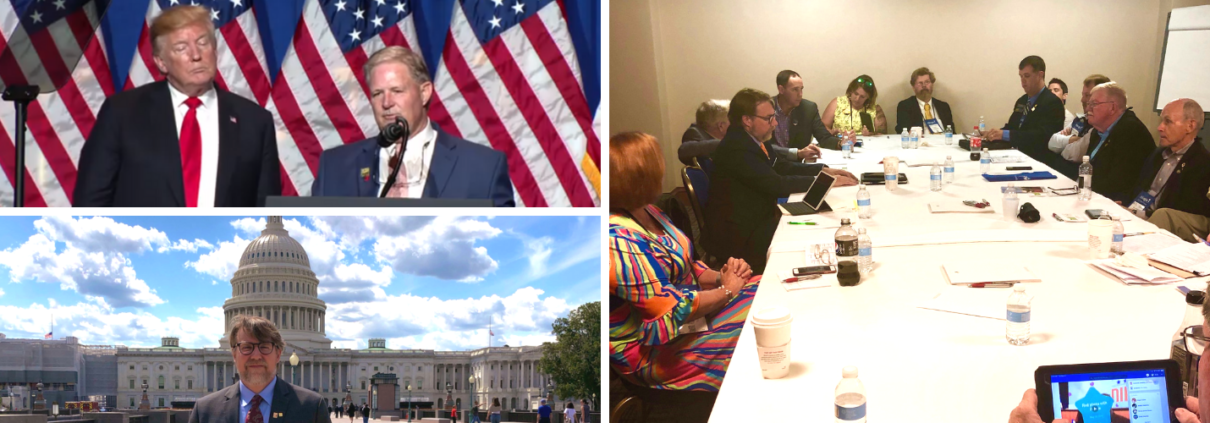Why the 1031 Exchange Should Not Be Eliminated
Internal Revenue Code Section 1031, which allows taxpayers to defer, not eliminate, payment of capital gains and recapture tax on the sale of property, has been in the Federal tax code for the past 100 years. Despite this longevity, there have been numerous proposals from elected officials to remove Sec. 1031 in order to allegedly “close a tax loophole” or pay for another government program. So far, in each of these instances, this battle-tested provision of the tax code has passed the challenge of scrutiny but only after lawmakers took the time to understand its full economic impacts. Section 1031 impacts liquidity throughout the real estate market, has revenue implications to the Treasury as a result of a slowdown in transaction volume, and has a general positive impact on the US economy as a whole.
New Studies Show Potential Detriment of Eliminating 1031 Exchange
In response to past attempts to eliminate the Section 1031, a coalition was formed by industry giants to educate Congress on the full Section 1031 impact. Two separate impact studies were conducted: one by Ling & Petrova and one by Ernst & Young LLP. As each study delineated the financial effect of limiting or eliminating of Section 1031, the numbers articulated what pages of political soundbites might not have. Elected officials quickly came to the realization that not only was the cost of like-kind exchanges to the Treasury grossly overstated, but that an outright repeal would devastate several important industries, harm the economy as a whole, and in the end cost the government in the long run.
Both the Ling & Petrova and Ernst and Young studies address how Section 1031 creates liquidity throughout the real estate investment market, which provides incentives and support for real estate to achieve its highest and best use. The transactional activity from trading out of yesterday’s real estate to a new piece of real estate to meet tomorrow’s needs is a catalyst for a stream of economic activity, creating jobs and taxable revenue for realtors, qualified intermediaries, title companies, escrow, insurers, lenders, contractors, inspectors, appraisers, building supply vendors, etc. and generates revenue for local and state governments through transfer taxes, permitting fees, and increased tax basis from upgraded buildings and improved communities.
The 1031 Exchange Stimulates Agriculture
In addition to these studies, it is well known that Sec. 1031 stimulates America’s vital agricultural sector. Farmers and ranchers use Section 1031 to combine acreage or acquire higher grade land or otherwise improve the quality of their operations. Retiring farmers can exchange their most valuable asset, their farm or ranch, for other real estate without diminishing the value of their life savings.
Section 1031 is also used to promote conservation and environmental policies. Grants of conservation easements can be structured as tax-deferred exchanges, facilitating government and privately funded programs designed to improve water quality, reduce soil erosion, maintain wetlands and sustain critical wildlife habitat. These exchanges also enable landowners to acquire replacement farm or ranchland in less environmentally sensitive locations.
Section 1031 is an important tool in the agricultural and commercial real estate market and must be retained. It creates and preserves jobs and is used by a broad spectrum of taxpayers, from middle-class Americans, to small businesses and even large enterprises, to synergistically spur on our economy.

Key Findings from Ling & Petrova Study
- Like-Kind Exchanges Encourage Investment: On average, taxpayers using a like-kind exchange invest approximately 33% more capital than non-like-exchange investors.
- Like-Kind exchanges provide only temporary tax deferral: The overwhelming majority- 88 percent of real estate replacement properties acquired through a like-kind exchange are disposed through taxable sales, not subsequent like-kind exchanges.
- Like-Kind Exchanges lead to job creation: Real Estate acquired through a like-kind exchange is associated with greater investment in capital expenditures (i.e., job-creating property upgrades and improvements) than real estate acquired without the use of like-kind exchanges.
Key Findings from Ernst and Young Study
- Repeal of 1031 would subject businesses to a higher tax burden on their transactions, resulting in a longer holding periods (the “lock-in” effect).
- Repealing 1031 rules would slow economic growth, shrink investment and ultimately reduce gross domestic product.
- The study concludes that repeal of the 1031 would adversely impact the U.S. economy by discouraging investment, causing a reduction in GDP, a contraction in the economy, and would unfairly burden certain industries and taxpayers.
About the Author

Daniel Wagner is senior vice president of government relations for The Inland Real Estate Group of Companies, Inc. He has been a licensed real estate broker since 2004 and holds Series 7 and 63 security licenses.
Wagner serves on numerous real estate industry, and governmental boards and committees. He is a proud member of the REALTORS® Land Institute.
IRS Extends 1031 & Opportunity Zone Tax Deadlines
A message from NAR:
The IRS issued guidance Thursday evening to grant deadline relief for both 1031 like-kind exchanges and opportunity zone investments that are already underway. Both of these programs are designed to promote economic growth in communities, and NAR made the case that investors in these programs should not be harmed due to the effects of COVID-19.
- 1031 Like-kind Exchanges. If an investor has taken the first step of a like-kind exchange by selling the old property, and either the 45-day or the 180-day deadline falls between April 1 and July 15, the deadline has been extended to July 15. RLI has strongly supported this action, signing on to a letter to the Department of Treasury urging them to extend the deadline.
- Opportunity Zones. If an investor who sold a capital asset planned to roll over the gain into an Opportunity Fund and the 180-day deadline to do so falls between April 1 and July 15, 2020, he or she can make the investment as late as July 15.
Also, sole proprietors who pay quarterly estimated taxes now have until July 15 to file their second quarter payment. As a result of an earlier IRS notice, first quarter estimated tax payments had already been extended to July 15. This means that any individual or corporation that has a quarterly estimated tax payment due on or after April 1, 2020, and before July 15, 2020, can wait until July 15 to make that payment, without penalty.
NAR has advocated heavily for these extensions since the outbreak of the COVID-19 pandemic. NAR will have a full analysis of this announcement on their dedicated Coronavirus page.
The Realtors® Land Institute Applauds The New WOTUS Rule
January 23, 2020 (Chicago) – The REALTORS® Land Institute applauds the U.S. Environmental Protection Agency and the U.S. Army Corps of Engineers for replacing the 2015 Clean Water Act, also known as Waters of The U.S. (WOTUS), with a new Clean Water/WOTUS rule that provides much-needed and long-awaited regulatory certainty for landowners nationwide.
The new rule brings clarity to which level of government – federal or state – oversees land that is usually dry but may take on water depending on weather. The new rule does not change who oversees permanent waterways, such as lakes, rivers, streams and other bodies that always or usually contain water. However, it does make clear that usually dry areas, like Prior Converted Crop (PCC) land, should not be considered federal waters and will remain excluded from their jurisdiction.
The 2020 National President of the REALTORS® Land Institute Kyle Hansen, ALC, responded to the news with the following comment, “The REALTORS® Land Institute and National Association of REALTORS® have long been strong supporters of the review and repeal of the WOTUS rule so that clarifications like this could be made to ensure that both private property rights and clean waterways are protected. This is a big win for landowners across the country, and a perfect reminder of the importance of using a qualified agent to help you navigate both the local and federal regulations that can come with conducting a land transaction.”
About the Realtors® Land Institute
The Realtors® Land Institute, The Voice of Land, continually strives to maintain its status as the acknowledged leader for all matters pertaining to the land real estate profession. The Realtors® Land Institute provides the expertise, camaraderie, and valuable resources that are the foundation for all land real estate professionals to become the best in the business. For more information, visit rliland.com or call 800.441.5263.
For additional information, please contact:
Jessa Friedrich, MBA, Marketing Manager
800-441-5263 | jfriedrich@realtors.org
News & Notes From Inside The Beltway: A Land Legislation Update From The Hill
Despite the rancor and polarization in Washington, D.C. these days, there is good news coming out of the nation’s capital. The following two issues show that positive developments can still happen to encourage economic development and protect property rights.
Qualified Opportunity Zones
The Qualified Opportunity Zones (“QOZ”) program was enacted in the 2017 Tax Cuts and Jobs Act to encourage economic growth in underserved communities through tax incentives for investors. Along with those tax benefits, it presents opportunities for real estate investment and development in those communities. American states and territories, including Washington, D.C., nominated areas (by census tract) to be designated as QOZs in 2018, and the IRS and Treasury finalized the designations that year. This temporary program (set to expire on December 31, 2047) presents opportunities for real estate investment and development in distressed communities. There are several potential tax benefits to investors who invest in a QOZ, if all requirements are met:
- First, capital gains reinvested (within 180 days of a sale to a nonrelated person) into a QOZ are tax-free as long as they are held in the program, through 2026.
- If held for five years, the tax ultimately paid on the reinvested gains is reduced by 10%; if held for seven years, that reduction is increased to 15%.
- In addition, gains accrued on deferred gains funds while invested in a QOZ are tax-free if they are held for at least ten years.
Investments in “Opportunity Funds” (O Funds) may be gains from a previous sale (within 180 days) and/or non-gains funds, but only reinvested capital gains are eligible for the tax benefits. If both gains and non-gains funds are invested, they are treated as separate investments and will receive different tax treatments.
- To qualify for the tax benefits, investments into a QOZ must be made through an O Fund, which may be a partnership or corporation organized for the purpose of investing in QOZ property. The requirements for an O Fund are:
- Must hold at least 90% of the assets in QOZ property (which can be stock, partnership interests, and/or tangible property used in a trade or business within a QOZ, such as real estate);
- Must certify with the Treasury and IRS, via a self-certification filed with federal tax returns (Form 8996).
Finally, the “QOZ business property” that an O Fund invests in must be “substantially all” in a QOZ, which under the proposed rules is met if 70% or more of the property is in a QOZ. The statute also requires that after an O Fund acquires QOZ business property that it be either “original use” (new) or “substantially improved,” which means investing at least as much on the improvement as was paid for the used asset. “Original use” commences with depreciation, so an unfinished asset purchase by an O Fund in a QOZ can qualify for original use as long as it has not been depreciated yet. In addition, vacant or abandoned property can be considered original use if it has been in that state for at least five years. The proposed rules state that the basis of the land a business sits on does not need to be included for the substantial improvement requirement, thus reducing the required investment amounts.
On December 12, 2018, the White House issued an Executive Order establishing the White House Opportunity and Revitalization Council, chaired by Housing and Urban Development (HUD) Secretary Ben Carson and comprised of 13 Federal agencies. The Council will focus on ways to revitalize low-income communities, through streamlining coordinating existing Federal programs to economically distressed areas, including Opportunity Zones. In May 2019, U.S. Department of Housing and Urban Development (HUD) released a notice that it will be offering new incentives for multifamily property owners to invest in Opportunity Zones.
Knick v. Scott Township, PA Supreme Court Case
The Supreme Court of the United States (SCOTUS) issued a landmark property rights decision on June 21, ruling that the federal courts are open to decide landowners’ claims for a Fifth Amendment “taking” of property by local regulatory agencies. In Knick v. Township of Scott, the nation’s highest court reversed a 1985 precedent that had forced property owners to first bring takings lawsuits in state courts, which acted as “gatekeepers” to block the claims from ultimately getting to federal court.
The 5-4 ruling in Knick holds that suits arising under the Takings Clause can be brought as an initial matter in U.S. trial courts, and then appealed as of right in U.S. circuit courts – just like any other alleged grievance to vindicate protections in the Constitution’s Bill of Rights. Such matters are no longer relegated to state judges for resolution. Federal courts are now proper venues to test the constitutionality of aggressive land-use decisions by local regulators, and can decide whether landowners are owed “just compensation” for a property taking.
Chief Justice Roberts’s majority opinion corrected the litigation dilemma for property owners trapped between the state and federal judiciaries. “The takings plaintiff thus finds himself in a Catch-22: He cannot go to federal court without going to state court first; but if he goes to state court and loses, his claim will be barred in federal court,” Roberts wrote. “The federal claim dies aborning.”
Roberts added, “Takings claims against local governments should be handled the same as other claims under the Bill of Rights. We now conclude that the state litigation requirement imposes an unjustifiable burden on takings plaintiffs, conflicts with the rest of our takings jurisprudence, and must be overruled.” The attorney representing the property owners before SCOTUS remarked that Knick “reject[s] barriers that unfairly deny property owners their day in court [and] sends a message that property rights are just as sacred as all other rights.”
 About the Author: Russell Riggs is a Senior Policy Representative with the National Association of Realtors in Washington, DC. For the past 23 years, Russell has advocated on behalf of Realtors on energy, environment, property rights, immigration and natural resource issues before Congress and federal regulatory agencies.
About the Author: Russell Riggs is a Senior Policy Representative with the National Association of Realtors in Washington, DC. For the past 23 years, Russell has advocated on behalf of Realtors on energy, environment, property rights, immigration and natural resource issues before Congress and federal regulatory agencies.
Russell also serves as the Advocacy Liaison to the REALTORS Land Institute, NAR‘s Global and Business Affairs Group, and NAR’s Resort and Second Home Group. Prior to his position with NAR, Russell held positions with the U.S. Department of Energy, the Council of State Governments, the National Governors Association and the New Jersey Department of Environmental Protection. Russell holds a Bachelors degree from Virginia Commonwealth University, and Masters Degrees from Tufts University and New York University.
Repeal Of WOTUS Rule Finalized
The US Environmental Protection Agency and the Army Corps of Engineers has announced they have finalized the repeal of the controversial WOTUS Rule. This move will provide much-needed and long-awaited regulatory certainty for landowners nationwide. The revocation of the rule was announced via Facebook Live by U.S. Environmental Protection Agency (EPA) Administrator, Andrew Wheeler, and Assistant Secretary of the Army for Civil Works, R.D. James, in Washington, D.C.
“Repealing the rule is a major win for American agriculture,” noted U.S. Secretary of Agriculture Sonny Perdue, in remarks he made at the presentation. “Farmers and ranchers are exceptional stewards of the land, taking great care to preserve it for generations to come. President Trump is making good on his promise to reduce burdensome regulations to free our producers,” he added.
According to the EPA news release, the 2015 rule:
- Did not implement the legal limits on the scope of the agencies’ authority under the Clean Water Act as intended by Congress and reflected in Supreme Court cases.
- Failed to adequately recognize, preserve, and protect the primary responsibilities and rights of states to manage their own land and water resources.
- Approached the limits of the agencies’ constitutional and statutory authority absent a clear statement from Congress.
- Suffered from certain procedural errors and a lack of adequate record support as it relates to the 2015 Rule’s distance-based limitations.
“With this final repeal, the agencies will implement the pre-2015 regulations, which are currently in place in more than half of the states, informed by applicable agency guidance documents and consistent with Supreme Court decisions and longstanding agency practice,” the news release stated.
The REALTORS® Land Institute and National Association of REALTORS® has been a strong supporter of the review and repeal of the WOTUS Rule, as laid out by President Trump’s Executive Order, to ensure that both private property rights and clean waterways are protected.
Related Articles
U.S. Supreme Court Rules Property Owners Can Go Directly To Federal Court With Claims
In a 5-4 decision on Friday, June 21, the US Supreme Court overturned decades of precedent by ruling that “property owners can go directly to federal court with claims that state and local regulations effectively deprive landowners of the use of their property.” The REALTORS Land Institute stands behind this ruling, which gives more power to private property owners over their land. This decision will especially impact cities and properties on the coasts which tend to have strict regulations for development. Developers and private property owners often find themselves battling red tape with zoning rules and other state or local regulations which often effectively take their property for public benefit.
Read more on this topic:
RLI Attends 2019 REALTOR® Legislative Meetings & Trade Expo
REALTORS® Land Institute leadership and members attended the REALTORS® Legislative Meetings and Trade Expo in Washington, DC, from May 13-18. Check out these key highlights from the event to see RLI’s presence and impact while at the event:
- The morning of Tuesday, May 14, RLI hosted its RLI Leadership and Member Meeting where Russell Riggs, RLI’s Legislative Liaison to the National Association of REALTORS®, gave an update on the latest legislative issues affecting the land industry and Aubrie gave an update about the RLI 2017-2020 Strategic Plan.
- RLI Leadership again attended the NAR Commercial Reception in the evening on Thursday, May 16 to make sure our organization’s presence was felt.
- While in town, RLI 2018-19 National President Jeramy Stephens, ALC, and RLI CEO Aubrie Kobernus visited the Capitol to thank Senator Cotton (R-AR) for sponsoring SR 115 which congratulates RLI on its 75th Anniversary this year!
- Finally, on Friday, May 17, RLI 2016 National President Bob Turner, ALC, was invited to the stage by US President Donald Trump to speak on Opportunity Zones. Turner is considered the REALTOR® expert on the topic. President Trump started off his speech discussing how his policies have helped strengthen private property rights in the land industry. He came back to discussing land-related issues various times throughout the speech to his audience of REALTORS®, referencing the positive impacts of his administration’s polices being implemented by the Environmental Protection Agency, the benefits landowners may see from the recent tariff policies, and more.










